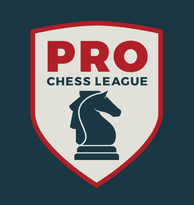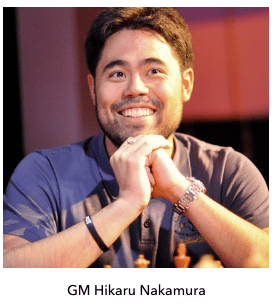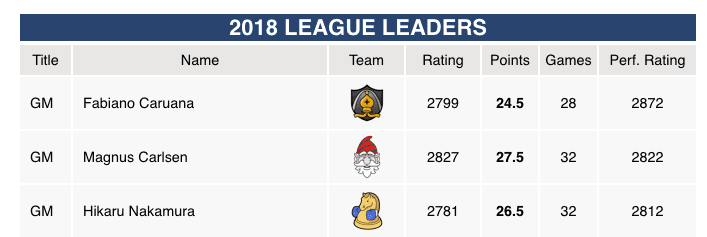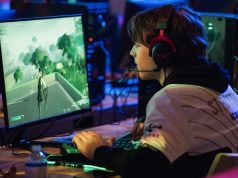History’s Most Followed eSport Making Waves in Twitch Streams
Update: While the Seattle Sluggers chess team did not advance to the 2019 Pro Chess League Finals, the top board, Grandmaster Hikaru Nakamura achieved another impressive milestone by winning the U.S. Chess Championship on March 30th. Hikaru will wear the crown of United States Chess Champion for the coming year.
The true Game of Thrones, the captivating game of Chess is emerging from a majestic, centuries-old history that has attracted millions of followers around the world to become one of the leading eSports of the digital age.

On a visit to the online video game streaming site Twitch (owned by Amazon) during the recently completed World Chess Championship between young Norwegian grandmaster, Magnus Carlsen, and American challenger, Fabiano Caruana, live chess “streams” could be seen

Now a new season of the Pro Chess League is kicking off at the start of the new year with one of the top speed chess players in the world playing board one for our home-town team — the Seattle Sluggers.
Currently ranked as the “world’s #3” in the accelerated forms of chess known as “rapid,” “blitz” and “bullet” chess — played as fast as five minutes, or even one minute per side, Hikaru Nakamura is Seattle’s LeBron James, an International Super-Grandmaster who has lived in Seattle off and on over the last decade. These days it is easier to follow Hikaru making his rounds across the international chess tournament circuit, and after hours, streaming his Twitch chess show from hotels in London, Saint Petersburg, Kolkata, India or from the Chess Hall of Fame and National Scholastic Chess Center in St. Louis, Missouri.

The Pro Chess League consists of 32 teams from 18 countries that are organized into four divisions. Four players represent a team in any single round. American city teams like the Saint Louis Arch Bishops, which won the championships in the league’s inaugural year, or the Miami Champions, New York Marshalls, San Jose Hackers, Dallas Destiny and Seattle Sluggers (among many others) compete with international teams like the Mumbai Movers, Norway Gnomes (featuring world champ Carlsen on top board), Barcelona Raptors, Armenia Eagles and Berlin Bears.
The Seattle Sluggers open the third season of the Pro Chess League on Tuesday, January 8th at 5:25 PM Pacific and the schedule continues weekly for ten weeks.
Games can be watched online in real time from the comfort of
At the end of the season, The Finals are organized as the penultimate eSports event by bringing the top teams in each division together at a physical venue. Over $20,000 in prize money is awarded to the winners of the event, which is still a fraction of the $1 million euros ($1.14 million USD) awarded at the men’s World Chess Championship, or $286,000 for the women’s World Chess Championship. But the purses and the sponsors are growing.

The Pro Chess League was founded and is led by commissioner Greg Shahade, a titled player, entrepreneur and chess innovator who has advanced many ideas for adding more excitement to the classic game which he claims was badly in need of a fix. His ideas include speeding up the time limits for games with different points awarded for different speeds. In an era where computers can outplay humans at slow chess, why not make the more popular “blitz chess,” played quickly with a digital chess clock, the new, more entertaining standard?
With computers having surpassed the mere mortal chess playing abilities of humans, avid chess fans can now avail themselves of the ultimate spectator sport opportunity— watching a live game that is backed up (behind-the-scenes) by the superhuman analysis of a chess engine side-by-side with the more colorful interpretations of online commentators and guest hosts like Seattle-raised Yasser Seirawan who anchors game commentary for several of the online chess networks.
Chess fans can play, train or watch games at online clubs like Chess.com,
Cult-like Twitch streams coached by grandmasters on channels like Chessbrah (from Montreal) or the Atlanta Chess Center (hosted by comedic chess cut-up Ben Finegold), round out just a few of the abundant online offerings (more than 20 Twitch streams at last count.)
What other
As an eSport, chess lets you play against a computer at graduated skill levels, or against other players from around the world, and, at Chess.com, the chess engine will analyze your game at the end telling you how and where you could have improved. The same online companion hasn’t yet revolutionized games like bridge, scrabble, Go or poker (although poker comes closest).
Chess as eSport optimizes both the recreational and the educational sides of the legendary game. It is bringing new meaning to the phrase “digital mastery.” [24×7]




















